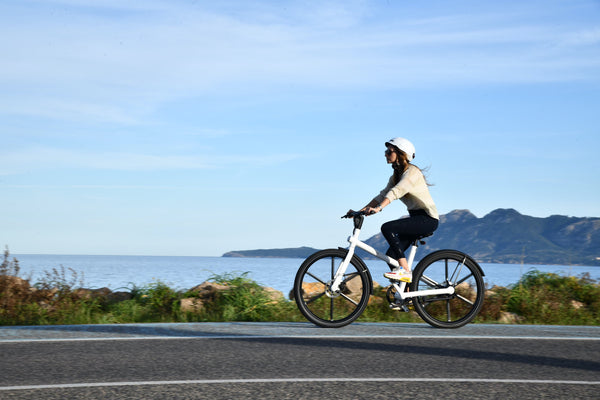Share Article
Are Electric Bikes Changing Traditional Bicycle Culture?
Electric bicycles are gaining popularity as an alternative to traditional bicycles. This shift to e-bikes has some people questioning whether they are changing traditional cycling culture. While there are certainly some similarities between the two, electric bikes are definitely changing the way people think about cycling.

Effects of Electric Bikes on Traditional Bicycle Culture
Changes in Participation Rate
One of the most notable differences between electric bikes and traditional bicycles is their ease of riding. With electric motors and batteries, e-bikes require less physical effort than traditional bikes. This means that those who may have been afraid to ride due to lack of fitness or stamina can now participate in cycling activities. This has the potential to appeal to a wider audience for cycling, including seniors and people with reduced mobility.
Modification in Riding Style
Electric bikes assist riders by providing a motorized boost while pedaling or using throttles, which ensures a greater range than traditional bicycles. This assistance allows riders to achieve higher speeds with less physical effort than traditional bikes. As a result, traditional cyclists who switch to e-bikes may experience a change in their riding style, adapting to the increased speed and reduced effort.
Great Impact on Society
Foremost, electric bikes serve as a green mode of transportation. This helps to solve the carbon crisis and reduce the global warming effect. Thus, government and concerned agencies actively support the integration of e-bikes into traditional bicycle culture.
Another impact of electric bikes on society is the economic effect and promotion of a healthier lifestyle. It improves work productively, especially in manufacturing industries offering global products and services. When people are agile to work, they are less depressed or worried. Cycling to workplaces also allows you to lose excess fats such as sweat. Thus, this will lead to a saner and well-coordinated community.

Challenges of Electric Bikes
Even though electric bikes have gained massive popularity in recent years, but they are not without their drawbacks.:
Cost
Electric bikes are more expensive than traditional bikes due to the additional components, such as the electric motor and battery. The upfront cost of an e-bike can be a barrier for some potential buyers. Also, e-bikes require more maintenance than traditional bikes, especially for chained models. If you are riding a chainless bike such as shaft drive or belt drive model, you may not overspend on repair or maintenance costs.
Maintenance
As mentioned earlier, electric bikes are not easy to maintain than traditional bikes. Unlike electric bikes, you can quickly implement DIY techniques to fix traditional bikes' technical issues. You need to be extra careful when working with electric bikes, especially with the electrical component. Any slight error from the user end may affect the overall performance of the electric bike.
Future of Electric Bikes
The future of electric bikes is promising, with several trends and developments shaping their trajectory. Based on research, below are possible changes that will surface in the electric bike industry.
New Innovations
Electric bike components will be subjected to technological developments, including electric motors, batteries, and control systems. These improvements will lead to more efficient and powerful e-bikes. This growth will also likely lead to a boarder range of e-bike models and styles, catering to various consumer preferences and needs.
Future Trends
E-bikes will be rapidly integrated with smart technology, including smartphone connectivity, GPS navigation, and fitness tracking features. This integration will further allow riders to track their routes, monitor performance metrics, and services tailored for e-bikes. Future developments may involve advanced connectivity, such as integrating smart city infrastructure or vehicle-to-vehicle communication systems.
Potential Issues
As promising as the future of electric bikes seems, they pose some potential issues. Legal regulation, safety concerns, and wrong perceptions among traditional cyclists could pose hindrances. There need to be strict legal regulations that guide the usage of electric bikes in highly-populated areas. This will help manage the safety concerns in these areas, as every rider must implement safety tips. For instance, wearing helmets should be mandated in rural and developed regions.
Conclusion
Overall, it seems clear that ebikes are fundamentally changing traditional cycling culture. They made cycling accessible to a wider range of people and opened up new possibilities for adventure and exploration. Yet they are also challenging some long-held beliefs about what cycling is and what it should be. As e-bikes grow in popularity, it will be interesting to see how they shape the future of cycling culture.



























Leave a comment